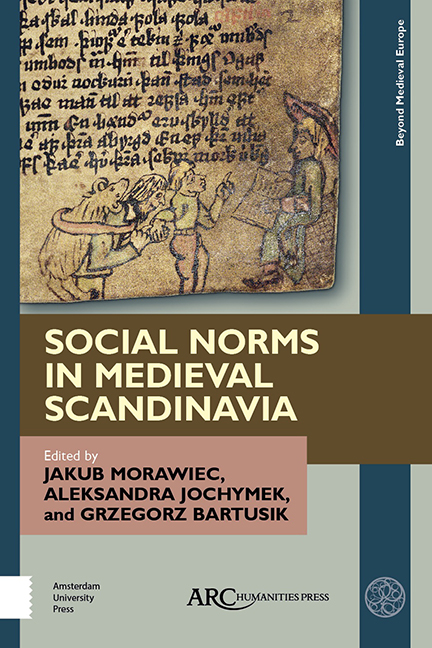Chapter 14 - Þótti mǫnnum … hann myndi verða engi jafnaðarmaðr: The Narrator, the Trouble-Maker, and Public Opinion
Published online by Cambridge University Press: 20 November 2020
Summary
WHETHER A SAGA has a very large cast of characters, as in Njáls saga, or just a handful of named participants, as Hrafnkels saga does, the general public remains an ever-present entity. Victories and defeats at assemblies; the likelihood of gathering support for a legal or physical onslaught; even an individual's chances of simply surviving the narrative—all are affected by the nebulous force of public opinion. In this chapter I will problematize some of the assertions made in Lars Lönnroth's influential article on rhetorical persuasion in the sagas, analyzing three examples of the way in which difficult characters are framed by the opinion of the public in their respective narratives.
My focus in this chapter is on the genre known as Íslendingasögur (“family sagas”), and I maintain an approach to this material that recognises it primarily as literature that developed from a tradition of oral storytelling. The examples discussed will all be drawn from the body of characters associated with the quality of ójafnaðr (inequity), who are a set of trouble-makers that we would expect to be on the receiving end of largely negative public opinions. Thus, like others in this volume, this chapter explores the way in which social norms must necessarily be defined alongside their opposites.
In an article published in 1970 that remains used and useful to this day, Lars Lönnroth maintained that public opinion in the family sagas was little more than an authorial opinion dressed up in rhetorical finery. He traced its use, along with other devices, through the phases of a typical saga plot: from a character's introduction, to the climax of a conflict, to the conclusion of the story. Throughout this the public in the sagas are, he claimed, the narrator's “spokesmen.” The public are the narrator's way of maintaining a tone of apparent objectivity, while still letting the audience know how we should read a scene: “There is rarely a hint of conflict between the public opinion and the narrator's own views, or between public opinion and the views which the narrator expects his audience to have. ‘Good’ and ‘bad’ can be identified almost completely with what the community approves or disapproves.”
- Type
- Chapter
- Information
- Social Norms in Medieval Scandinavia , pp. 239 - 254Publisher: Amsterdam University PressPrint publication year: 2019
- 1
- Cited by



